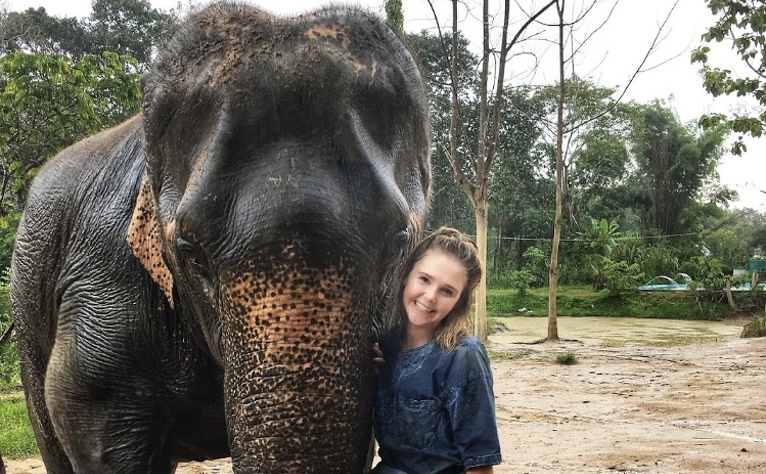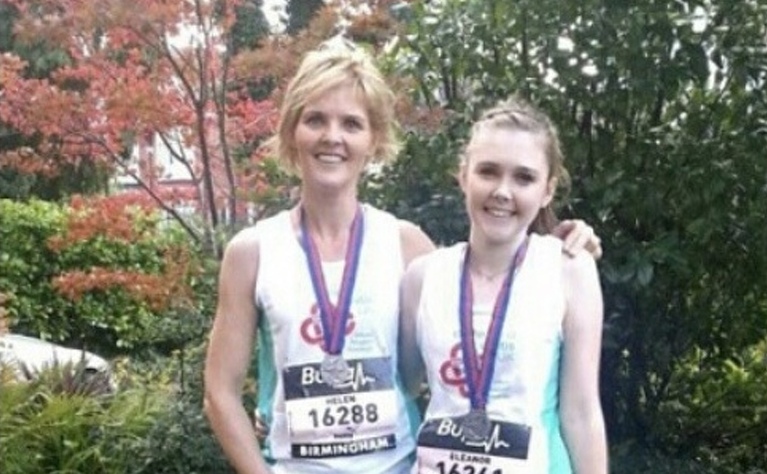Name: Ellie Redman
Year of Birth 1995
Lives: Birmingham, UK
Type of IBD: Crohn's disease
Diagnosis Date: 2005
Symptoms at Diagnosis: Abdominal pain, weight loss, angular stomatitis, fatigue
Details of Surgery: Terminal ileal resection and right hemicolectomy
Hello! I’m Ellie and I’m 26 years old and suffer from Crohn’s Disease. Unlike many IBD patients, I was diagnosed fairly quickly. I was 10 years old and had a number of common Crohn’s symptoms including abdominal pain, low appetite, weight loss and angular stomatitis. After being reviewed by my GP and having some blood tests, I was then referred to the gastro team at Birmingham Children’s Hospital who arranged for an endoscopy and colonoscopy along with some other tests which confirmed I had active Crohn’s disease.

As I was very young at the time, I don’t quite remember how I took the news or if I fully even understood what it meant. I just remember lots of trips to the hospital and having frequent stomach pain at school and very low energy.
My height and weight were among the doctor’s initial concerns as active disease was faltering my growth. Weighing just over three stone at the age of ten, I started on eight week polymeric diet therapy as well as nocturnal nasogastric (NG) tube feeding four - five nights a week which I continued until I was 16. I also took iron for my anaemia and other medication such as steroids, Salofalk and azathioprine.
"Despite being on various medications and supplements, I was still experiencing flare ups and my weight was still very low."
Despite being on various medications and supplements, I was still experiencing flare ups and my weight was still very low. I had surgery in 2007 - a terminal ileal resection and right hemicolectomy (removal of part of the small bowel). Surgery was successful and enabled me to start gaining weight more easily. However I continued to struggle with multiple symptoms and had another large flare up in 2011, which is when I was started on my first biological agent treatment, infliximab.
I remained on eight weekly infliximab infusions for around four years until we discovered I’d built up resistance to the drug and had developed inflammatory arthritis. The following 18 months saw my joint pain worsen to the point where I wasn’t able to physically get out of bed or walk the 20 minute walk to university from my student house. I was taken off infliximab and treated with methotrexate and steroid injections which eliminated all joint pain.
During university I also discovered I had kidney stones after a long and painful night in A&E. This came as a surprise to me but I later found out kidney stones can be common in Crohn’s patients, particularly following surgery, due to malabsorption of fat and bile salts. I had shock wave lithotripsy treatment which was luckily successful in the removal of the stones.

In 2017 I was finally in remission for the first time since diagnosis and it couldn’t have been better timing! I’d always wanted to go travelling after finishing my studies and I was thankfully well enough to go on two amazing ski seasons, as well as backpacking around Europe, Indonesia and Southeast Asia.
Since returning from my travels my health has been quite up and down. I found out I had complex perianal disease and had multiple flare ups and so I started on adalimumab (Humira) in 2019 which I self-injected every two weeks. I unfortunately did not respond to Humira so switched to ustekinumab (Stelara) in 2020. Ustekinumab involves regular injections which the home nurse team come out and give me, and I am very pleased to be so far feeling better on this drug.
“... there definitely still remains a stigma that Crohn’s is just tummy aches and lots of trips to the toilet! But it is often much more than that.”
What would I say to patients who have recently been diagnosed with IBD? I’d say there’s no denying that living with IBD can be difficult, exhausting and mentally challenging. It can be stressful at times to worry about how to manage IBD symptoms outside of the comfort of your home. I also think there definitely still remains a stigma that Crohn’s is just tummy aches and lots of trips to the toilet! But it is often much more than that.

Being confident in talking openly about your disease and educating others is super important and can make a big difference. Accept that there will be bad days but also remember that there will be plenty of good days too. Don’t give up - you are stronger than you know!